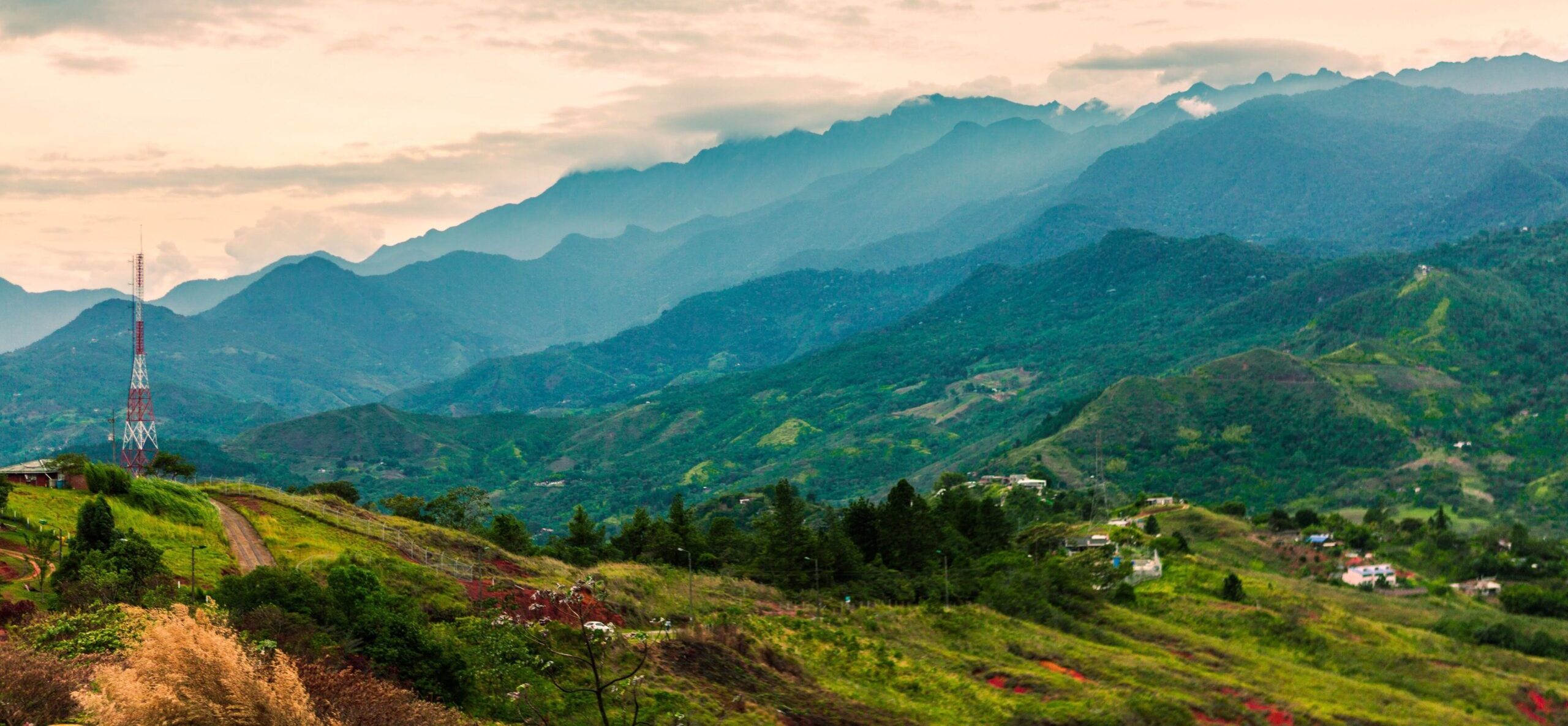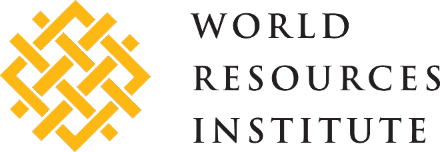The Nature Crime Alliance at COP16
Engage with the Secretariat and Alliance members during the CBD COP

Update: Read our post-conference roundup of nature crime developments at COP16 here
Nature crime devastates species and ecosystems and undermines global biodiversity goals.
As the Convention on Biological Diversity Conference of the Parties (COP16) convenes in Cali, the number of sessions on nature crime reflects a growing awareness of the threat these illicit activities pose to the CBD’s ambitions, including Target 3 of the Global Biodiversity Framework.
To help participants navigate the expansive agenda at COP16, this page contains information about the various events and activities that have a focus on nature crime, including those of Nature Crime Alliance members.
Engage with us
The Nature Crime Alliance Secretariat is attending COP16. If you’re participating and want to learn more about the Alliance, please reach out to our representatives in Cali:
Chip Barber: charles.barber@wri.org | WhatsApp: +1 202 729 7600
Elodie Perrat: elodie.perrat@wri.org | WhatsApp: +1 917 361 1996
Luke Foddy: luke.foddy@wri.org | WhatsApp: +44 7870 515582
Nature crime on the agenda
COP16 features many events with a focus on nature crime across the Green and Blue Zones, including sessions involving members of the Nature Crime Alliance. We’ve selected some below:
Monday, 21 October
- Government of Seychelles, SEF: “Ecocide” law as enforceable protection for biodiversity: how business and civil society can support state leadership,13:15 – Malpelo (Contact Group 1 meeting room), Plaza One
- Alliance member event: IUCN, UNEP, and other partners: Developing Indicators for Targets 4 and 5: Human Wildlife-Conflict and Sustainable Use and Trade of Wild Species, 13:20 – Farallones (Youth meeting room), Plaza One
Tuesday 22 October
- Alliance member event: WJC, UNODC, INTERPOL, and other partners: Innovative Strategies for Prevention and Effective Coordination in Combating Crimes that Affect the Environment through the Monitoring of Illicit Financial Flows, 13:20 – Cocora (Subnational and Local Authorities meeting room), Plaza One
- National Geographic Society: Tracing the Flow of Mercury in the Amazon: A One Health Systems Approach to Healthier Communities and Wildlife, 15:00 – Mavecure (Business and Industry Organizations meeting room), Plaza One
- Alliance member event: Indigenous Peoples Rights International: GBF Training Manual For Integrating Indigenous Peoples’ rights and perspectives in the implementation of the Kunming-Montreal GBF, 17:00 – Indigenous Peoples MPC Pavilion
- Alliance member event: IUCN, GFW, UNODC, and other partners: Monitoring, control and surveillance of future high seas MPAs: what role for emerging technologies?, 18:00 – Farallones (Youth meeting room), Plaza One
Wednesday 23 October
- Alliance member event: UNODC: Peace with environmental justice: A necessary approach, 9:00 – Colombian Government Conference Rooms
- Alliance member event: UNODC: Alliance for the Amazon: Regional approach against illegal activities and their impacts on biodiversity, 11:00 – Colombian Government Conference Rooms
- CPW: Collaborative Action for Sustainable Wildlife Management – Highlights from Joint Initiatives of Collaborative Partnership on Sustainable Wildlife Management, 11:40 – Cocora (Subnational and Local Authorities meeting room), Plaza One
- Alliance member event: WRI, BEF: Applying AI, Traditional Knowledge, and Earth Observation to Conserve and Restore Natural Ecosystems in the Amazon and Beyond, 11:40 – Cocuy (Marie Khan Women’s Caucus meeting room), Plaza One
- Alliance member event: IUCN: Weaving a common agenda for rights and conservation, 13:15 – EU Pavilion
- Alliance member event: UNODC: The gold route: proposals and challenges for promoting environmentally and socially responsible mining, 14:00 – Colombian Government Conference Rooms
- Alliance member event: Amazon Conservation: The Power of Technology and Partnerships to Stop Illegal Gold Mining in the Amazon Side Event, 16:00 – IUCN Pavilion
- Alliance member event: IUCN, GRID-Arendal: Innovative Knowledge Management for scaling practical solutions: Leveraging PANORAMA for Global Biodiversity Framework Implementation, 16:30 – Farallones (Youth meeting room), Plaza One
Thursday 24 October
- Alliance member event: Instituto Igarapé: Global Challenges in Addressing Environmental Crimes for Biodiversity Protection, 08:00 – Casa Britanica
- Alliance member event: TRAFFIC: Working together to tackle Illegal Wildlife Trade, 09:00 – Casa Britanica
- Alliance member event: UNEP, GRID-Arendal, and other partners: Building Resilience: Integrating Climate Change Adaptation and Conservation to Safeguard Vulnerable Species in Central Asian Mountain Environments, 10:10 – Cano Cristales (CEE meeting room), Plaza One
- Alliance member event: WRI: Responsible Mining and Sustainable Use of Critical Energy Transition Minerals in the Three Tropical Forest Basins, 10:30 – Cali, Colombia
- UN Women, EU, and other partners: Protecting the role of women environmental human rights defenders towards the achievement of KMGBF Targets 22 and 23: Lessons and opportunities from Europe and Latin America and the Caribbean, 13:20 – Sierra Nevada (Working Group II), CEVP Ground floor
- Alliance member event: UNODC: Indigenous territorial protection monitoring and surveillance systems, 14:00 – Colombian Government Conference Rooms
- Organisation waiting for approval: “Environmental Protection”: the role of the National Police in the Preservation of the Biodiversity, 16:30 – Nuqui (Academia & Research meeting room), Plaza One
- OCCP: Peace processes and environment: contributions and challenges from an integral perspective, 16:30 – Paramos (NGOs meeting room), Plaza One
Saturday 26 October
- Alliance member event: Fauna and Flora International: Championing partnerships between civil society, business and finance to deliver long lasting results for people and nature, 12:00 – Pace Quebec, Valle del Pacifico Events Center
Sunday 27 October
- Alliance member event: WWF UK with Instituto Igarapé: Beyond Conservation: Addressing Environmental Crime, Crime Convergence and Financial Sector Impacts on Biodiversity at COP16, 09:00 – IUCN Pavilion
Monday 28 October
- Government of Colombia, Earthrights, and other partners: Promoting an enabling environment for Environmental human rights defenders advancing Biodiversity and climate justice, 13:20 – Cocuy (Marie Khan Women’s Caucus meeting room), Plaza One
- Alliance member event: TRAFFIC: Tiger Conservation, 13:30 – GEF Pavilion
- Alliance member event: Instituto Igarapé: Building Ecosystem and Social Resilience as a Strategy for Environmental Crime Prevention, 14:00 – CGIAR Pavilion
- Alliance member event: UNODC: Animals in dangers “Guardianes Galapaguitos”, strengthening education to prevent wildlife trafficking on the Galapagos Islands, 15:30 – Colombian Government Conference Rooms
Tuesday 29 October
- Alliance member event: UNODC: Lanzamiento y presentación de la campaña de sensibilización “¡Rompe la cadena! Di no al tráfico ilegal de flora y fauna”, 14:00 – Zoologico de Cali
- Alliance member event: IUCN NL and partners: Europe-Latin America Perspectives on Protection Mechanisms for Environmental Defenders, 15:00 – Cocuy (Marie Khan Women’s Caucus meeting room), Plaza One
- Alliance member event: UNODC and partners: The war on drugs and its impact on the environment: Biodiversity at risk, 16:30 – Paramos (NGOs meeting room), Plaza One
- Government of Colombia: Global commitment to an international agreement on mineral supply chain traceability, 18:00 – Mavecure (Business and Industry Organizations meeting room), Plaza One
Wednesday 30 October
- Alliance member event: UNODC: From crime to conservation: Addressing the threats of environmental crime to biodiversity loss and the role of financial institutions, 08:30 – The GREAT Casa Britanica
- Alliance member event: WWF UK and HSBC: Environmental Crime Financial Toolkit Launch, 08:30 – The GREAT Casa Britanica
- Alliance member event: IUCN NL: Prosper with Nature: safeguarding biodiversity and human rights in energy transition mineral supply chains, 09:00 – IUCN Pavilion
- Alliance member event: WWF and partners: Zero deforestation to avoid the tipping point in the Amazon, 13:20 – Cocora (Subnational and Local Authorities meeting room), Plaza One
- Alliance member event: WRI and partners: Land use and land tenure for biodiversity: Towards a headline indicator for T22 of CBD’s Global Biodiversity Framework, 15:00 – Cocora (Subnational and Local Authorities meeting room), Plaza One
- Government of Colombia and OTP: Environmental Justice: Ensuring collective action in response to Environmental Crimes, 15:00 – Nuqui (Academia & Research meeting room), Plaza One
- Alliance member event: UNODC: Wildlife Enforcement Networks as support tools: Operational network for the exchange of information and monitoring of wildlife trafficking in Latin America, 15:30 – Colombian Government Conference Rooms
Thursday 31 October
- Alliance member event: UNODC: Regional cooperation on illegal mining: Impacts on the Amazon Region, 10:00 – OTCA Pavilion
- Alliance member event: WRI and partners: The LandMark Platform: Mapping Indigenous Peoples’ and Local Communities’ Land Rights to Support the Implementation of the KMGBF, 10:10 – Farallones (Youth meeting room), Plaza One
- Alliance member event: UNODC: Capacity-building initiatives in Brazil: A successful case study of the partnership between IBAMA and UNODC, 11:00 – UNCT Conference Room
- Alliance member event: UNODC: Brazilian National Action Plan to prevent and control deforestation and the upcoming UNODC-supported national plan on trafficking of fauna, 15:30 – UNCT Conference Room
- Alliance member event: FACT Coalition and other partners: Economías Ilegales en la Amazonía: Estrategias y Alternativas para la construcción un futuro de Derechos Colectivos y Protección de la Naturaleza, 16:30 – Cocora (Subnational and Local Authorities meeting room), Plaza One
- Alliance member event: UNODC: Alliance for the Amazon: regional approach against illegal activities and their impacts on biodiversity, 18:00 – Nuqui (Academia & Research meeting room), Plaza One
Alliance members’ COP16 resources
Some of our members have several resources linked to COP16, including reports, positions papers, new tools, and more.
- WRI at COP16, the UN biodiversity Conference
- The GEF at COP16
- Instituto Igarapé at COP16: Addressing Illegal Gold Mining in the Amazon Region: From Recognition of the Problems and Challenges to Collective Action
- IPRI: TRAINING MANUAL – Integrating Indigenous Peoples’ rights and perspectives in the implementation of the Kunming-Montreal GBF
- IUCN at COP16
- TRAFFIC at CBD COP16
- UNEP at the CBD COP16
- UNODC at COP16
- WWF Environmental Crimes Financial Toolkit
- FACT Coalition, Instituto Igarapé and partners: Addressing illegal gold mining in the Amazon region: A roadmap for policymakers
In brief: Key CBD areas to watch on nature crime
Several aspects of the CBD COP will touch on nature crime, and the Alliance’s strategic approaches, which may be of interest to participants. These include:
The Kunming-Montreal Global Biodiversity Framework (GBF): The GBF sets out four goals for 2050 and 23 targets for 2030, aiming to restore and safeguard biodiversity. The GBF is the basis for many of the central issues during COP16, given that one of the main aims of the summit is to evaluate the implementation of the Framework since its adoption. Find out more about the 23 Targets here.
Traditional Knowledge, Innovations and Practices: This is one of the most important cross-cutting issues outlined by the CBD. Traditional knowledge refers to the knowledge, innovations and practices of Indigenous Peoples and local communities, who are often on the frontline against nature crime, and play an essential role protecting our natural environments. For more resources, see the activities programme below.
Wildlife and People: A key aspect of countering illegal wildlife trafficking, sustainable wildlife management ensures wildlife populations and habitat are sustained over time, considering the socioeconomic needs of human populations.
Peace, security, and biodiversity: Peace, development, and environmental protection are interdependent and indivisible. Conflict on the international scale can undermine cooperation between governments, and can create law enforcement gaps and loopholes for criminal syndicates to exploit.
Making the most of COP16
The Alliance Secretariat convened a webinar to help civil society organisations better understand how the CBD COP works, and provide advice on how to make the most of their participation in this key global summit.
Dr Susan Lieberman, Vice President, International Policy, Wildlife Conservation Society, and Dr Chip Barber, Director, Natural Resources Governance and Policy, World Resources Institute, shared insights from their deep experience in engaging with the CBD process.
